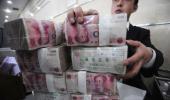 More than four decades ago, the Nixon administration knowingly broke United States law to help the Pakistani army against Bangladesh and encouraged China to mass troops on Indian border to oppose the strong stand taken by the then Prime Minister Indira Gandhi, according to a new book.
More than four decades ago, the Nixon administration knowingly broke United States law to help the Pakistani army against Bangladesh and encouraged China to mass troops on Indian border to oppose the strong stand taken by the then Prime Minister Indira Gandhi, according to a new book.
In his latest book, Princeton historian Gary Bass 'The Blood Telegram: Nixon, Kissinger and a Forgotten Genocide' documents how the then US President Richard Nixon and his Secretary of State Henry Kissinger supported Pakistan military dictatorship as it brutally quashed the results of a historic free election.
The Pakistani army launched a crackdown on east Pakistan, killing hundreds of thousands of people and sending 10 million refugees fleeing to India -- one of the worst humanitarian crisis of the 20th century.
The author writes in the latest book, which is scheduled to hit the book market on September 24, how Nixon-Kissinger hated both India and Indira and tried their level best to oppose the strong moral stand taken by the then Indian prime minister.
Nixon and Kissinger thought in Cold War terms but also indulged in their personal disdain for India and Indira, Bass writes in the book, adding that they even secretly encourages China to mass troops on their India border, and illegally supplied weapons to the Pakistani army, all while censoring American officials who dared to speak up.
Based on previously unheard White House tapes, the book gives a fresh insight into the Nixon-Kissinger hatred against Indira, and how the then American leadership supported the butchering of innocent people, who dared to speak their voice and vote against Islamabad.
As India under the strong leadership of Indira decided to rescue the lives of people of then east Pakistan from the brutality of the Pakistani military, Bass writes in the book -- running into nearly 500 pages -- that Kissinger proposed three "dangerous" initiatives against India.
"The US would illegally allow Iran and Jordan to send squadrons of US aircraft to Pakistan, secretly asks China to mass its troops on the Indian border, and deploy a US aircraft carrier group to the Bay of Bengal to threaten India. He urged Nixon to stun India with all three moves simultaneously," Bass wrote.
As China showed some reluctance in amassing troops on the India border, Bass writes in the book that Nixon argued that "we can't do this without the Chinese helping us. As I look at this thing, the Chinese have got to move to that damn border. The Indians have got to get a little scared."
According to Bass, Kissinger agreed, proposing that they notify the Chinese about what Nixon was secretly doing, and tell them of the advantages of China moving some of its soldiers to India's border.
On secretly supplying military equipment's to Pakistan, Kissinger told Nixon: "We are the ones who have been operating against our public opinion, against our bureaucracy, at the very edge of legality."
"That understates it," Bass writes.
"In fact, to help Pakistan, Nixon and Kissinger knowingly broke US law, and did so with the full awareness of George H W Bush, H R Haldeman, Alexander Haig and others," Bass said.
Then then Pakistani dictator, General Yahya Khan, on the second day of the war begged for US help, adding "for God's sake don't hinder or impede the delivery of equipment from friendly third countries."
Kissinger told Nixon, "If war does continue, give aid via Iran." Nixon was relieved: "Good, at least Pakistan will be kept from being paralysed." According to the book, the Shah of Iran agreed to a US request to send Iranian military equipment to Pakistan, with the United States replacing whatever Iran sent.
"Jordan also got a request from Yahya, for eight to 10 sophisticated US-made F-104 Starfighter fighter-interceptors. King Hussein seemed keen to move his squadrons, but, fearing congressional wrath, did not want to act without express approval. When he nervously asked the US embassy in Amman for advice, the diplomats balked," the book says.
"Kissinger noted with exasperation that these US officials were lecturing the king of Jordan that it would be immoral to get involved in a faraway war; these diplomats had not conceived of the last-ditch possibility of using Iran and Jordan to provide US weapons to the tottering Pakistani military," it said.
All this while, both the Pentagon and the state department officials told both Nixon and Kissinger that this was against the US law. But both were determined to pursue their course of action.
"The question is when an American ally is being raped, whether or not the US should participate in enforcing a blockade our ally, when the other side is getting Soviet aid," Kissinger said on December 8.
Nixon was the 37th president of the United States, serving from 1969 to 1974.










